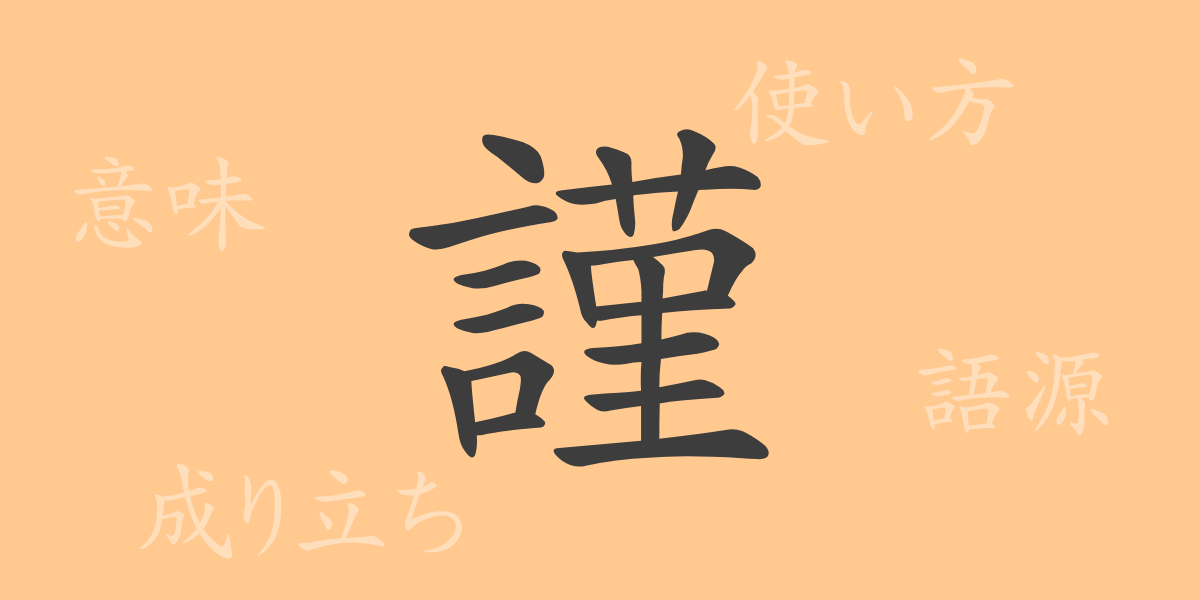In Japanese culture, kanji are an essential element. The meanings embedded in each character reflect the thoughts and values of the people who use them. “謹(きん)” is one of the commonly used kanji in Japan, often reserved for special occasions. This article will delve into the origins, meanings, and usage of “謹(きん)”, as well as explore idioms and proverbs that incorporate this character, revealing the rich world of expression it represents.
Origin of 謹(きん) (Etymology)
The kanji “謹(きん)” originates from ancient Chinese characters. It combines “言(げん)” meaning “word” and “心(こころ)” meaning “heart” or “mind.” Together, these elements convey the meaning of “speaking with caution and sincerity.” This combination imparts a deep sense of careful and thoughtful communication. In Japan, this kanji has been used since ancient times in various cultural and literary contexts.
Meanings and Uses of 謹(きん)
The kanji “謹(きん)” means “careful” or “cautious,” referring to conducting oneself or one’s actions with great care. It is often used in business documents and official papers to express respect, such as in phrases like “謹んでお知らせします (つつしんでおしらせします)” meaning “We respectfully inform you,” or “謹んでお詫び申し上げます (つつしんでおわびもうしあげます)” meaning “We sincerely apologize.” This kanji is also frequently seen in New Year’s greetings and condolence messages, emphasizing formality and respect.
Readings, Stroke Count, and Radical of 謹(きん)
The kanji “謹(きん)” has specific readings and structural elements:
- Readings: On’yomi (Chinese reading) – きん, Kun’yomi (Japanese reading) – つつしむ
- Stroke count: “謹(きん)” consists of 15 strokes.
- Radical: The radical is “言(げん)” related to words.
Idioms, Phrases, and Proverbs Using 謹(きん)
There are several idioms and proverbs that include the kanji “謹(きん).”
- 謹慎(きんしん): Restricting one’s actions to show remorse for a mistake.
- 謹聴(きんちょう): Listening attentively and respectfully.
- 謹賀新年(きんがしんねん): A formal New Year’s greeting that conveys respect and celebration.
These expressions are widely used in Japan, especially in formal documents and greetings.
Conclusion on 謹(きん)
The kanji “謹(きん)” plays a significant role in Japanese language, expressing respect and caution. From its origins to its various idioms and proverbs, this kanji has been cherished in Japanese culture. By using “謹(きん)” appropriately in business and official contexts, one can effectively convey respect to others. Understanding the depth of meaning in kanji like “謹(きん)” is essential for mastering the richness of the Japanese language.

























